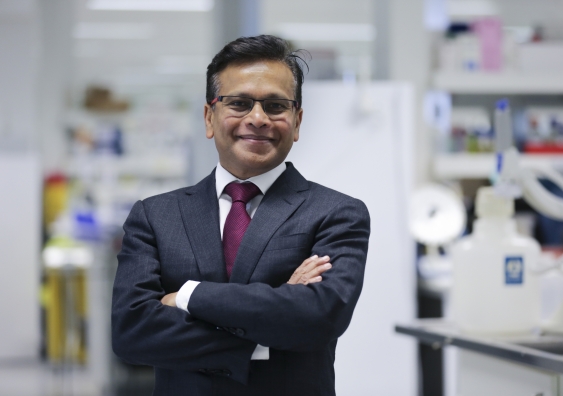UNSW to lead new drug trial for rare blood cancer
UNSW Professor John Pimanda will lead a trial to test a new drug combination in high-risk MDS patients, due to launch in 2021. MDS are a group of age-related blood disorders with low blood cell production and risk of progression to leukemia. High-risk MDS is a rare sub-group with low-survival rates.
Funded by a $3.3 million grant from the Medical Research Future Fund (MRFF), part of a $35.9 million investment in rare cancers and diseases announced by the Australian Government today, the trial will be led from the Adult Cancer Program at UNSW’s Lowy Cancer Research Centre and the Kirby Institute.
“Azacitidine is the drug currently available to high-risk MDS patients and it has response rates of around 50 per cent. Patients who initially respond well often progress on treatment and currently have no registered drug alternatives, poor quality of life and little hope,” Prof. Pimanda said.
“Using patient samples collected from high-risk MDS patients, we have noted that combining azacitidine with a drug that promotes azacitidine incorporation into DNA improves blood cell production from MDS blood stem cells that are refractory to azacitidine alone.”
Together with the Therapeutic and Vaccine Research Program in the Kirby Institute, and medical researchers and haematologists in NSW, Victoria, South Australia and the UK, this grant will allow researchers at the UNSW Lowy Cancer Research Centre to conduct a clinical trial to establish the safety and efficacy of the drug combination in high-risk MDS patients.
“This clinical trial will help bridge an unmet need in the current treatment landscape for higher risk MDS. A positive trial outcome could have a major impact on how these patients are managed in Australia and globally,” Prof. Pimanda said.
A media release put out by the Hon Greg Hunt MP, Minister for Health, said the government is driving an increase in clinical trial activity in Australia by supporting new, high quality research for Australians living with serious health conditions. “This funding is for breakthrough research to discover more options for the diagnosis, early detection and treatment of chronic disease,” it stated.

